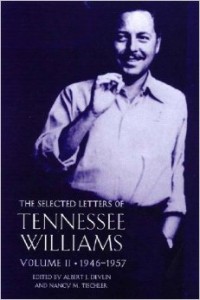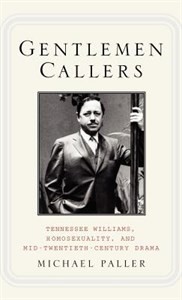 The Selected Letters of Tennessee Williams,
The Selected Letters of Tennessee Williams,
Volume II: 1945-1957
Edited by Albert J. Devlin
and Nancy M. Tischler
New Directions. 662 pages, $39.95
 Gentlemen Callers: Tennessee Williams, Homosexuality, and Mid-Twentieth Century Drama
Gentlemen Callers: Tennessee Williams, Homosexuality, and Mid-Twentieth Century Drama
by Michael Paller
Palgrave Macmillan. 269 pages, $26.95
“AFFLICTIONS, mortal afflictions! Especially those of love, how troublesome they are,” Tennessee Wil-liams lamented to a new friend, Gore Vidal (whom he addressed as “Bright eyes!”), from the apartment in Rome to which the playwright had retreated in the spring of 1948 following the crushing success of his first Broadway production, The Glass Menagerie. The letters included in this volume, the second of a projected four volumes of Williams’ selected correspondence, narrate the picaresque adventures of a comically inept clown who was driven in equal measure by a fear of aging and death, a sometimes desperate need for human contact (more often than not sexual), and the most tenacious will to create that the American theatre has known.







